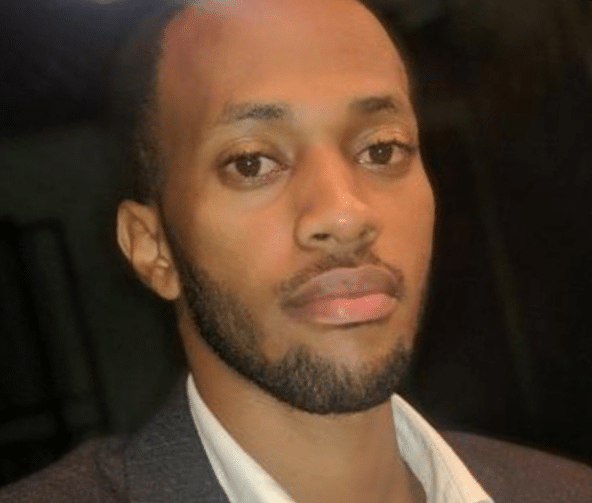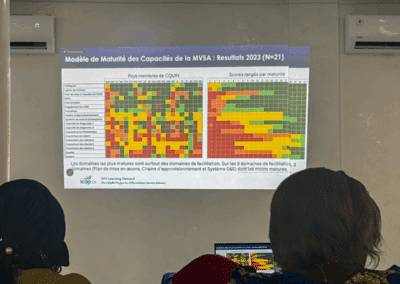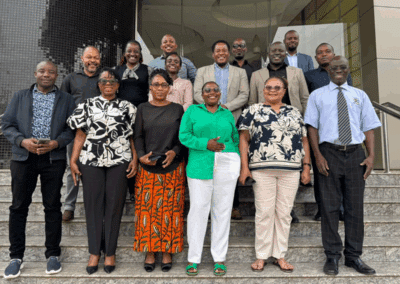Brian Kwizera, MBBS, MPH, has recently been appointed as the new technical advisor for DSD at the Rwanda Biomedical Center’s HIV/AIDS, STIs, and Viral Hepatitis Division, the HIV implementing body of the Rwanda Ministry of Health.
Rwanda joined the CQUIN network in July 2020, and Dr. Kwizera says that his biggest goal in his new role is to further improve the quality of HIV services in Rwanda by ensuring the integration of all health services for people living with HIV.
Dr. Kwizera, please tell us about your professional background
After graduating from the University of Rwanda in 2016, I joined the Gisenyi District Hospital as a junior medical officer and a clinical mentor for other staff in the hospital’s HIV program. When I was later promoted to work in the Rwanda Military Hospital, I coordinated HIV activities and outreach programs within the hospital’s catchment area. After a year, I joined the United Nations Peacekeeping Operation in Central Africa, where I provided care for UN staff and refugees. There I developed an interest in public health, so I applied for a scholarship to study for a Master’s in Public Health where I specialized in epidemiology at the University of Bradford in the United Kingdom. I rejoined the Rwanda Military Hospital on my return home, where I worked until 2020 when ICAP hired me as the CQUIN DSD Technical Advisor, supporting the Rwanda Biomedical Center.
Rwanda is relatively new to the CQUIN network. Can you tell us about the state of DSD implementation in Rwanda
Rwanda is a bit of a unique situation. We haven’t implemented community-based models because most of our health facilities are located within a five-kilometer radius of the community it serves. Therefore, the facility coverage for DSD is 100%. We have a DSD program in every health center, where people come in for their checkups and drug refills. Since early October, we’ve been rolling out six-multi-month dispensing (MMD) for ART, and it is progressing well – patient retention and viral suppression rates are good. What we are focusing on now is quality improvement for the DSD programs that are already in place.
What do you want to achieve in your new role as the DSD advisor?
I hope to work with the various partners and stakeholders working in the HIV program in Rwanda to integrate the services provided to people living with HIV. If we can harmonize these services, we can set standards across the board that will ultimately help us improve the quality of healthcare delivery to decrease the incidence of HIV and increase treatment adherence for people living with HIV.
Let’s take displaced people, for instance. In Rwanda, we have six refugee camps. Each camp has a health center within the base, but the health services provided are not the same as the services offered in other Rwandan health facilities. It would be good to integrate the health services at the camps and bring them under the MOH, so we can ensure the same standards and services offered in a Rwandan health facility are delivered to refugees.
What do you hope Rwanda can achieve as part of the CQUIN network?
I am very excited about the learning exchange. The south-to-south visits seem like an essential tool that would allow Rwanda to assess DSD implementation while learning from other countries. We are eager to adopt some of the successes from the countries in the network and bring them into our country’s context.






